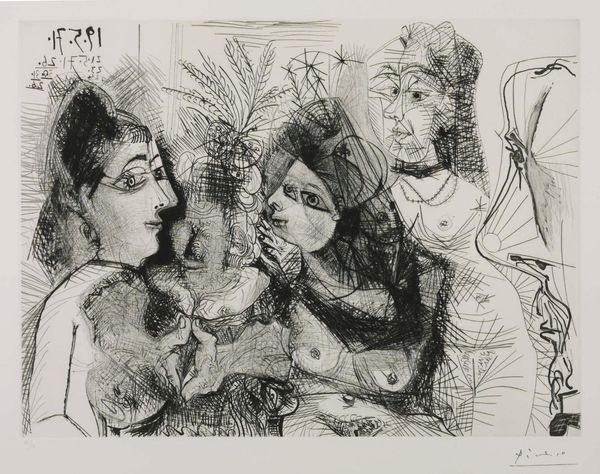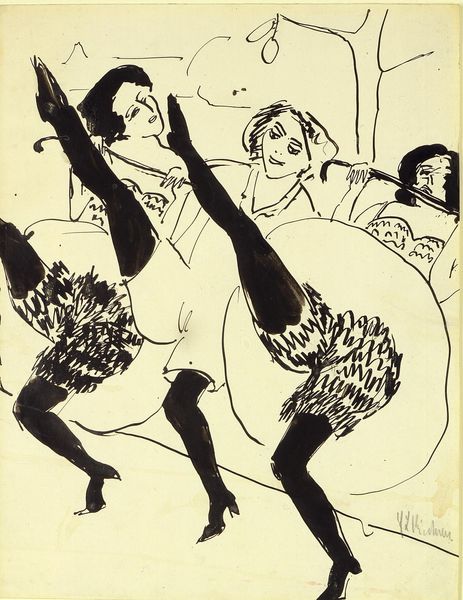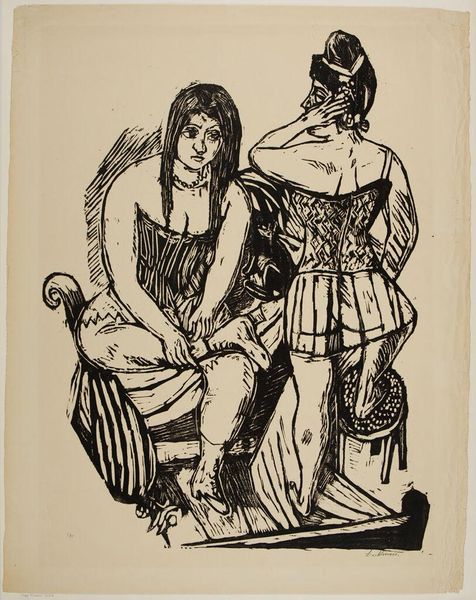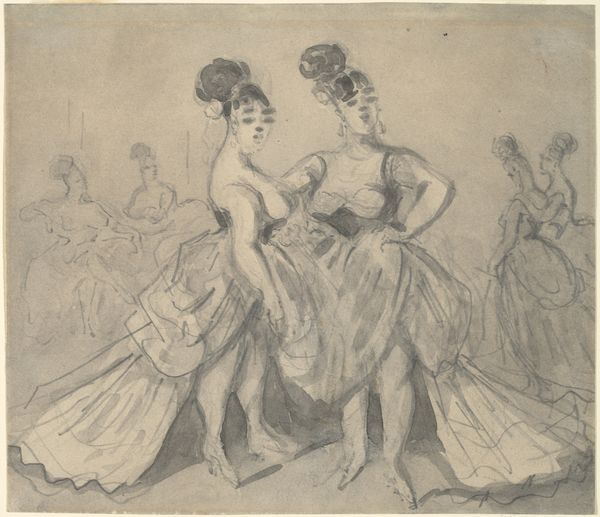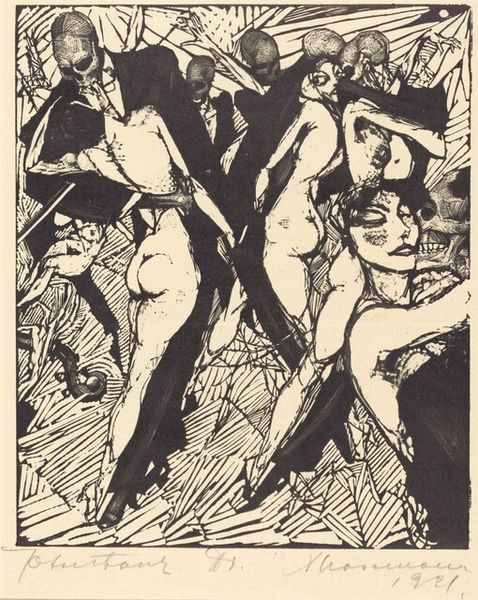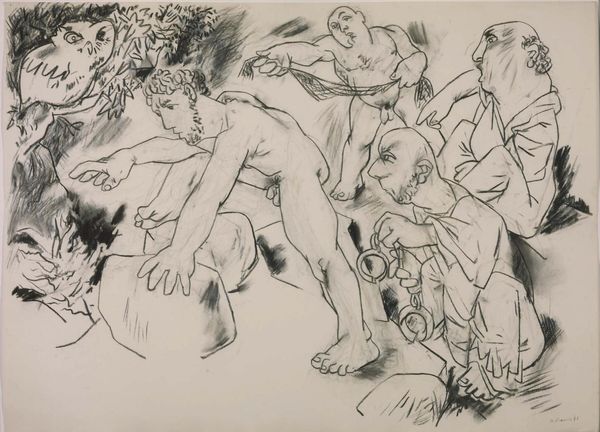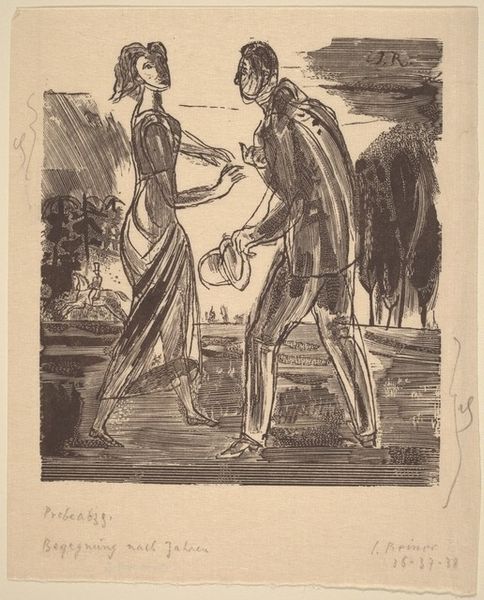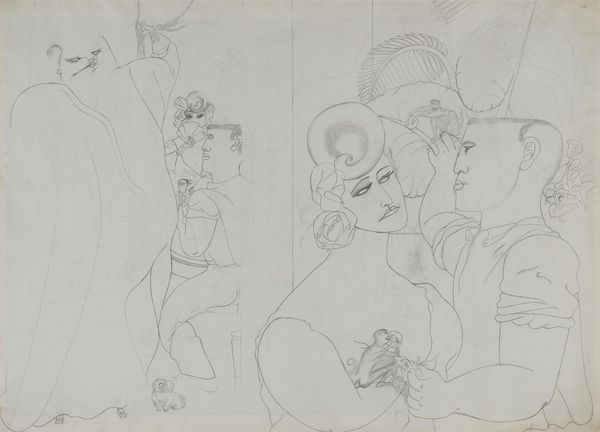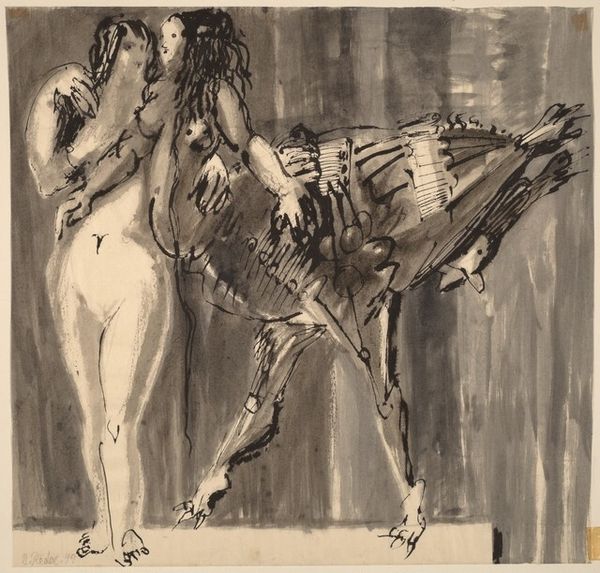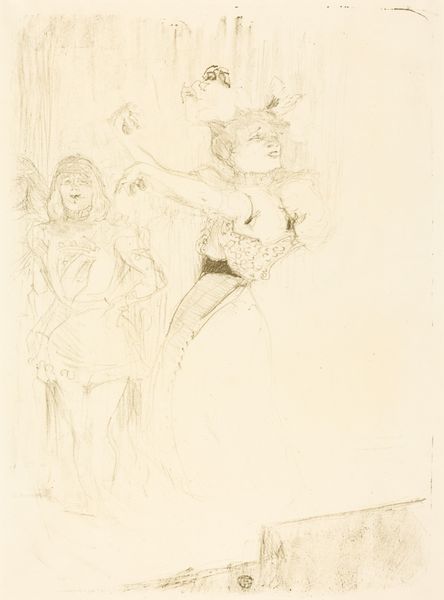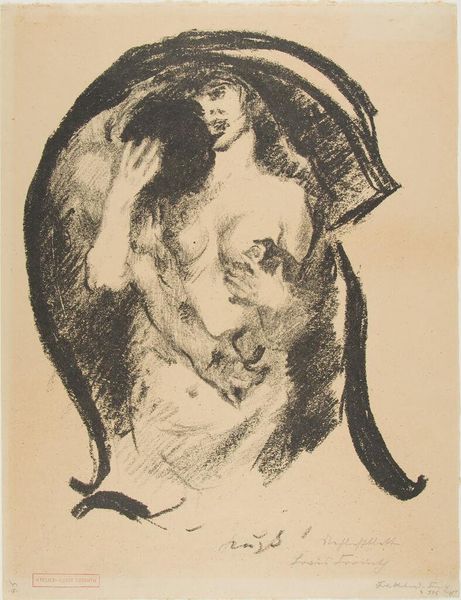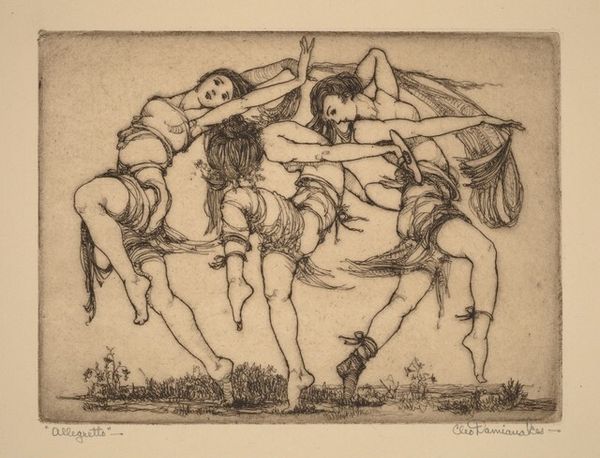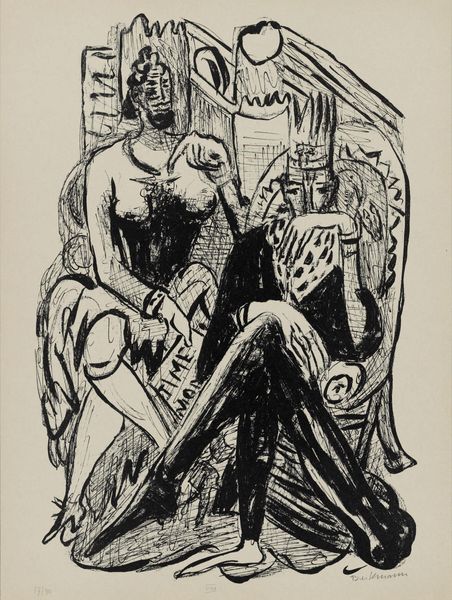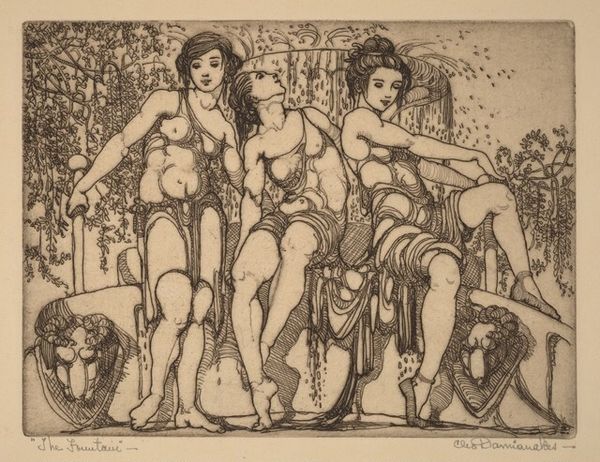
Dimensions: unconfirmed: 370 x 500 mm
Copyright: © Succession Picasso/DACS 2014 | CC-BY-NC-ND 4.0 DEED, Photo: Tate
Editor: We are looking at Picasso’s etching from 1971. It feels like an exploration of line, layering different figures and scenes. What strikes you most about the composition of this print? Curator: The dynamic interplay of linear forms commands immediate attention. Consider how the density of etched lines creates areas of high contrast, effectively sculpting volume and directing the viewer's gaze. Editor: I see that. It’s almost like a chaotic dance of lines and figures. Curator: Precisely. Note how Picasso manipulates line weight and density to create spatial ambiguities. Do you perceive a foreground, middle ground, and background, or does the composition resist such clear divisions? Editor: I think it resists. Everything sort of melds together. Thank you, I see new things now. Curator: Indeed. The resistance to traditional spatial arrangements is vital to its reading.
Comments
tate about 1 month ago
⋮
http://www.tate.org.uk/art/artworks/picasso-etching-22-26-may-1971-2-june-1971-l133-p77589
Join the conversation
Join millions of artists and users on Artera today and experience the ultimate creative platform.
tate about 1 month ago
⋮
Confronted by old age and impotence, Picasso was defiantly productive. These works are drawn from the series of 156 prints which he made between 1970 and 1972, around the age of 90. The series has been compared to a private theatre, in which the actors are Picasso himself, his close friends, and his favourite artists of the past. In the works shown here, Picasso appears as both a gnarled satyr, and as a shadowy silhouette looking on at two prostitutes. The face of his wife Jacqueline is portrayed in an artist’s sketchbook, as he watches a group of top-hatted clients enter a brothel. The Impressionist artist Edgar Degas appears as a frock-coated voyeur. The fixation with sexuality and voyeurism is bound up with an awareness of mortality. For Picasso, art had become the only means to defy the approach of death. Gallery label, August 2004
